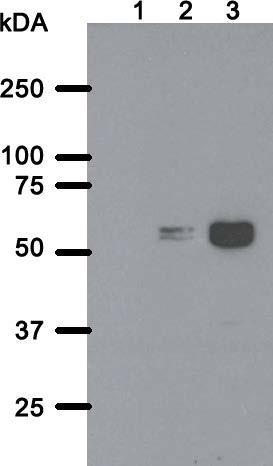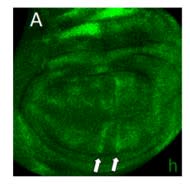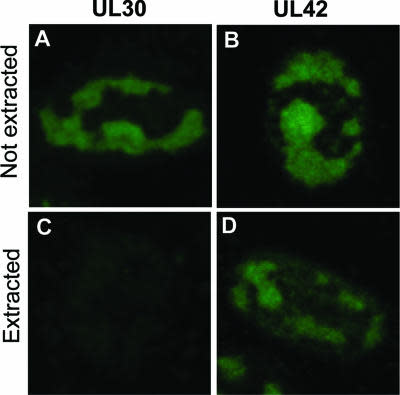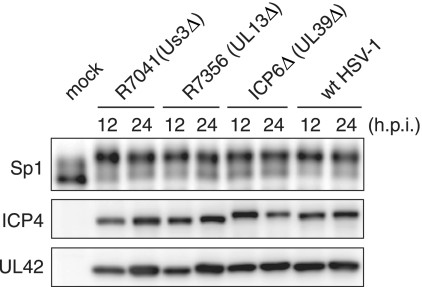Cat. #153486
Anti-A. aeolicus BPL/BioID2 [SS QD1]
Cat. #: 153486
Unit size: 100 ug
Availability: 1-2 weeks
Target: BPL R40G
Class: Monoclonal
Application: IF ; WB
Reactivity: Aquifex aeolicus
Host: Mouse
£300.00
This fee is applicable only for non-profit organisations. If you are a for-profit organisation or a researcher working on commercially-sponsored academic research, you will need to contact our licensing team for a commercial use license.
Contributor
Institute: A*STAR Accelerate Technologies Pte Ltd
Tool Details
*FOR RESEARCH USE ONLY
- Name: Anti-A. aeolicus BPL/BioID2 [SS QD1]
- Alternate name: BPL antibody, BioID2 antibody, Anti-BPL, Anti-BioID
- Clone: SS QD1
- Class: Monoclonal
- Conjugation: Unconjugated
- Molecular weight: 27 kDa
- Strain: C57BL/6
- Reactivity: Aquifex aeolicus
- Host: Mouse
- Application: IF ; WB
- Description: Monoclonal antibody used in the BioID method to detect protein-protein interactions. Background and Research Application BioID2 is a second-generation biotin protein ligase (BPL) that can be used to identify protein-protein interactions. In the BioID method a promiscuous biotin protein ligase (BPL) is fused to a protein of interests and expressed in vivo where it biotinylates proteins in a proximity-dependent manner. The biotinylated proteins can then be affinity purified and identified by mass spectrometry. The original BioID uses a promiscuous BPL from E.coli (BirA R118G), however due to its relatively large size it occasionally hindered proper targeting of the proteins it was fused to. The second generation of the BioID method is based on a BPL from hyper thermophilic bacterium Aquifex aeolicus (A. aeolicus) that was mutated within the conserved biotin binding site (R40G) causing loss of BPL single substrate specificity. The promiscuous A. aeolicus BPL R40G referred to as BioID2 is the smallest known BPL. The smaller BioID2 not only improved targeting of the bait but also proved to be more efficient in biotinylating proximate proteins. The SS QD1 monoclonal antibodies were generated to support the recent developments in the BioID, a method that can be used to detect potential interacting proteins.
- Immunogen: GST fused to A. aeolicus BPL R40G (BioID2)
- Immunogen uniprot id: O66837
- Isotype: IgG2 kappa
- Myeloma used: Sp2/0-Ag14
- Recommended controls: Cells overexpressing A. aeolicus BPL R40G (BioID2) construct
Target Details
- Target: BPL R40G
- Molecular weight: 27 kDa
- Target background: Monoclonal antibody used in the BioID method to detect protein-protein interactions. Background and Research Application BioID2 is a second-generation biotin protein ligase (BPL) that can be used to identify protein-protein interactions. In the BioID method a promiscuous biotin protein ligase (BPL) is fused to a protein of interests and expressed in vivo where it biotinylates proteins in a proximity-dependent manner. The biotinylated proteins can then be affinity purified and identified by mass spectrometry. The original BioID uses a promiscuous BPL from E.coli (BirA R118G), however due to its relatively large size it occasionally hindered proper targeting of the proteins it was fused to. The second generation of the BioID method is based on a BPL from hyper thermophilic bacterium Aquifex aeolicus (A. aeolicus) that was mutated within the conserved biotin binding site (R40G) causing loss of BPL single substrate specificity. The promiscuous A. aeolicus BPL R40G referred to as BioID2 is the smallest known BPL. The smaller BioID2 not only improved targeting of the bait but also proved to be more efficient in biotinylating proximate proteins. The SS QD1 monoclonal antibodies were generated to support the recent developments in the BioID, a method that can be used to detect potential interacting proteins.
Applications
- Application: IF ; WB
Handling
- Format: Liquid
- Concentration: 1 mg/ml
- Unit size: 100 ug
- Storage buffer: PBS with 0.02% azide
- Storage conditions: -15° C to -25° C
- Shipping conditions: Shipping at 4° C







